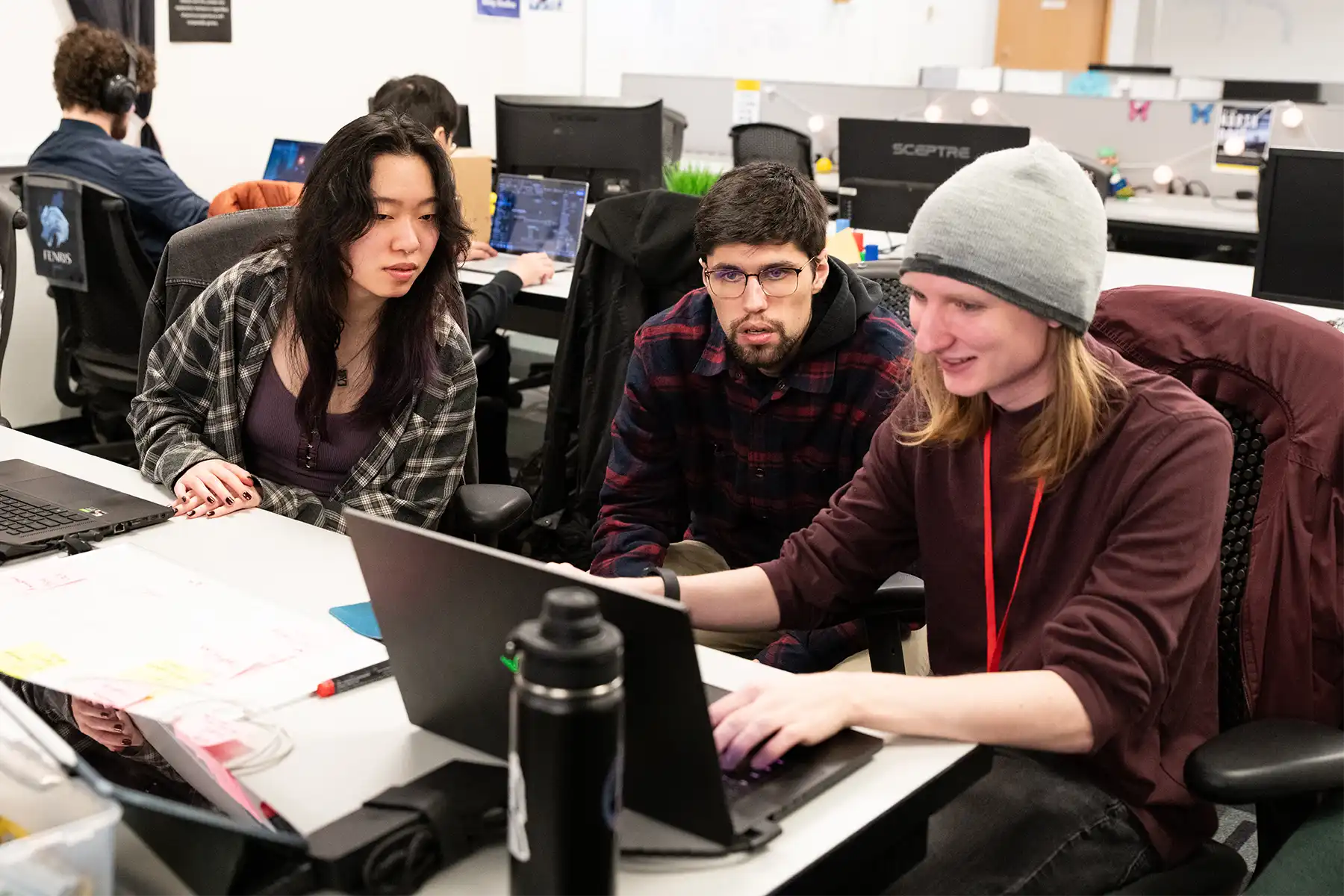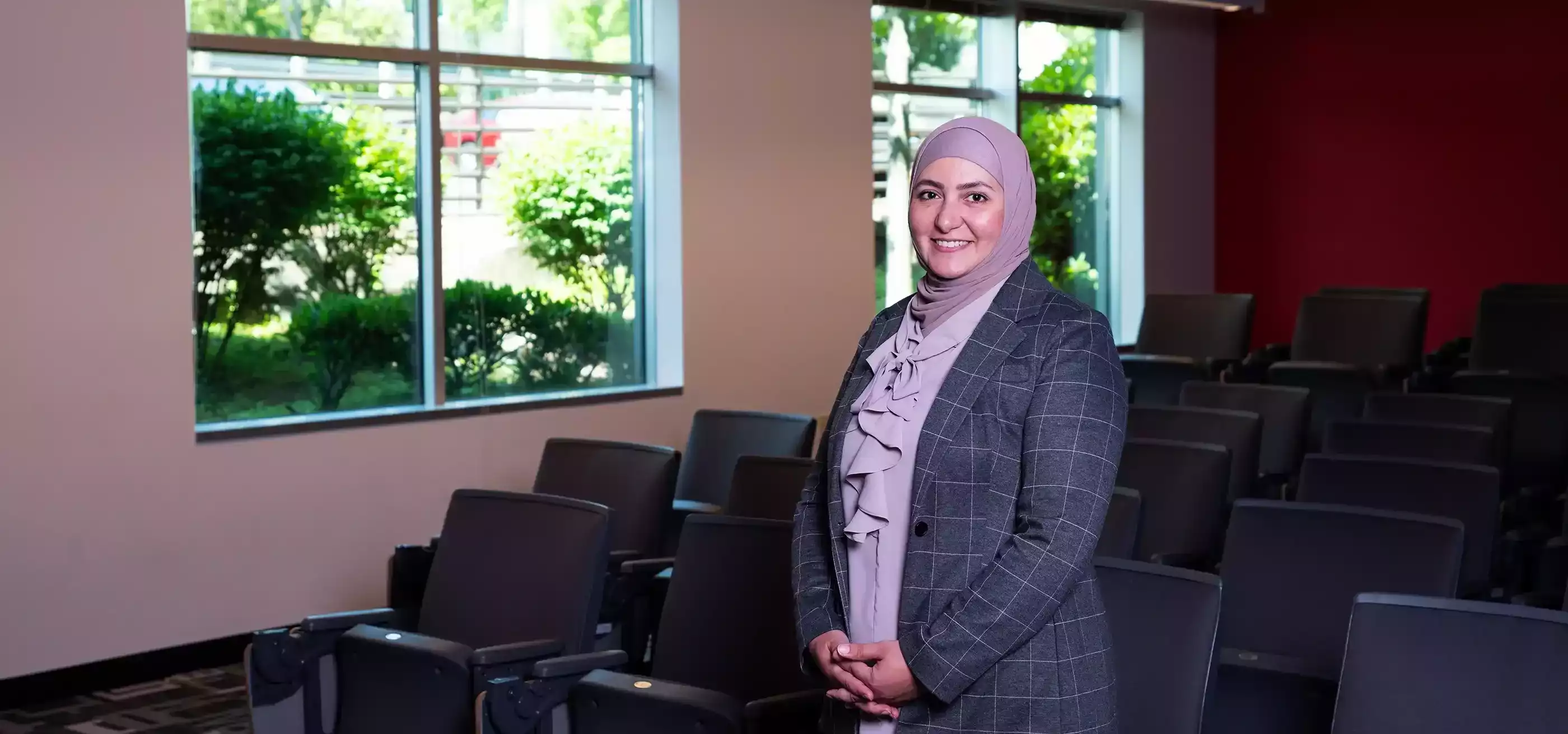You don’t need to sift through mountains of data to see that AI is booming. Tech giants like Meta, Amazon, Google, Nvidia, and Microsoft are investing hundreds of billions of dollars into AI development, while tools like ChatGPT, Gemini, and Copilot quickly become household names.
With 20 years of experience in AI research and engineering, Dr. Ola Amayri has been studying and shaping the technology long before it went mainstream. That unique perspective deeply informs her role as chair of DigiPen’s Department of Computer Science, where she helps design AI courses and teaches in the BS in Computer Science in Artificial Intelligence.
“AI is no longer confined to research labs. It’s powering everyday tools; becoming foundational across almost every industry; and reshaping the way we live, work, and learn,” Amayri says. “It’s incredible to witness this evolution, but it’s also a reminder of our responsibility. As educators and researchers, we have a duty to embed ethics into our teaching, research, and design processes not as an afterthought, but as a core part of building trustworthy systems and ensuring progress is beneficial to all.”
Amayri’s interest in AI bloomed during the final year of her undergraduate computer engineering studies in Jordan, when she developed an online handwriting recognition system for Arabic text using neural networks. “That experience sparked something deeper in me. It wasn’t just about writing code. It was about creating systems that could adapt, generalize, and respond in a human-like way,” Amayri says.
I want my students to leave the classroom not just knowing how to optimize a model, but understanding why it matters and who it serves.
Inspired, she decided to focus on AI during her graduate studies in Montreal. There, she developed an advanced machine learning algorithm for spam email filtering that attracted global media coverage, as well as interest from private companies, for its ability to evolve and adapt to sophisticated, shifting spam techniques, including cleverly disguised content and text.
For her post-doctorate, she joined research lab Synchromedia to take part in Montreal’s “Smart Cities” initiative, a project aimed at leveraging new technology to improve urban life in Canada. Amayri contributed by researching AI for smart home energy systems that could predict user consumption patterns based on real data, intelligently managing energy use to increase efficiency and reduce carbon emissions.
“It shifted my focus from purely theoretical AI to applied, interdisciplinary work where the goal is not just to build intelligent models but to design systems that meaningfully improve quality of life and align with global sustainability goals,” Amayri says. “These kinds of cases not only push the boundaries of what’s technically possible, but also have a tangible, positive impact. Those are the areas I’m especially excited about, where I believe AI can do its most meaningful work.”

Amayri’s evolving perspective on AI was further shaped by her volunteer work outside of academia. During her studies, she also joined the IEEE Women in Engineering network to encourage more women to join the field; collaborated with UNICEF to assist children in need around the world; and volunteered at a local community center for the elderly. “Those experiences are why I care about AI ethics, privacy, bias, how people will be responsible with the data they have, and why they should question assumptions,” Amayri says. “I want my students to leave the classroom not just knowing how to optimize a model, but understanding why it matters and who it serves.”
DigiPen’s CS 205 Professional and Societal Issues in Computing course addresses these issues head on, but it’s also a conversation Amayri weaves throughout the entire BS in Computer Science in Artificial Intelligence degree, as well as the Department of Computer Science’s larger AI coursework offerings. Rather than treating AI as an infallible “black box,” students dive into the very human-driven design and data that powers the technology.
AI is changing fast, and students’ ability to ask the right questions, interpret results responsibly, and understand the human impact of their work, will be just as important as writing great code.
“When I talk to students about AI models in my courses, I describe them as ‘picky eaters,’ and as picky eaters they show bias,” Amayri says. “They are very hungry and need so much data to work, but even still, sometimes the models only look at certain data to reach conclusions. You as data scientists need to check that data to make sure there’s no bias and be responsible with how you use it.”
Students in DigiPen’s BS in Computer Science in Artificial Intelligence program have the option to apply the lessons they learn to original video game team projects, where they have contributed their expertise toward things like robust enemy AI, sword and shield asset generators, and AI agents that learn to play AI-generated golf courses. Alternatively, students may choose to work on a computer science project developing software or AI systems with a focus on applications outside the realm of gaming. Taking cues from Amayri and the Department of Computer Science’s vision for AI as a vehicle for tangible, positive impact, students have created remarkable projects, including a neural network that can optimize treatment for patients with aggressive brain cancer.
“AI is changing fast, and students’ ability to ask the right questions, interpret results responsibly, and understand the human impact of their work will be just as important as writing great code,” Amayri says. “Many breakthroughs in AI remain locked in academic papers. I want to help bridge that gap, whether through smart city applications like the ones I worked on, or by empowering students to bring cutting-edge ideas into practical, usable systems.”
